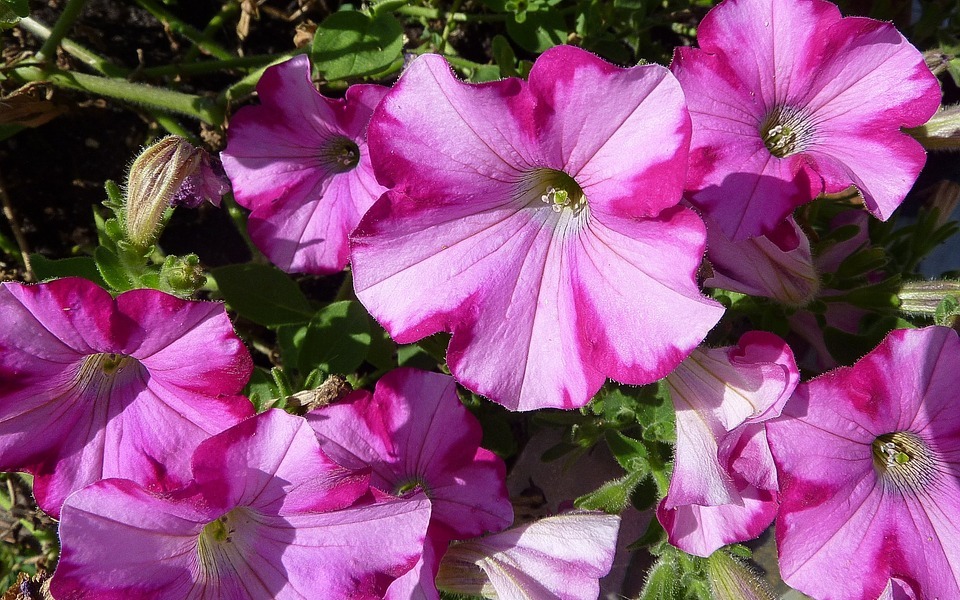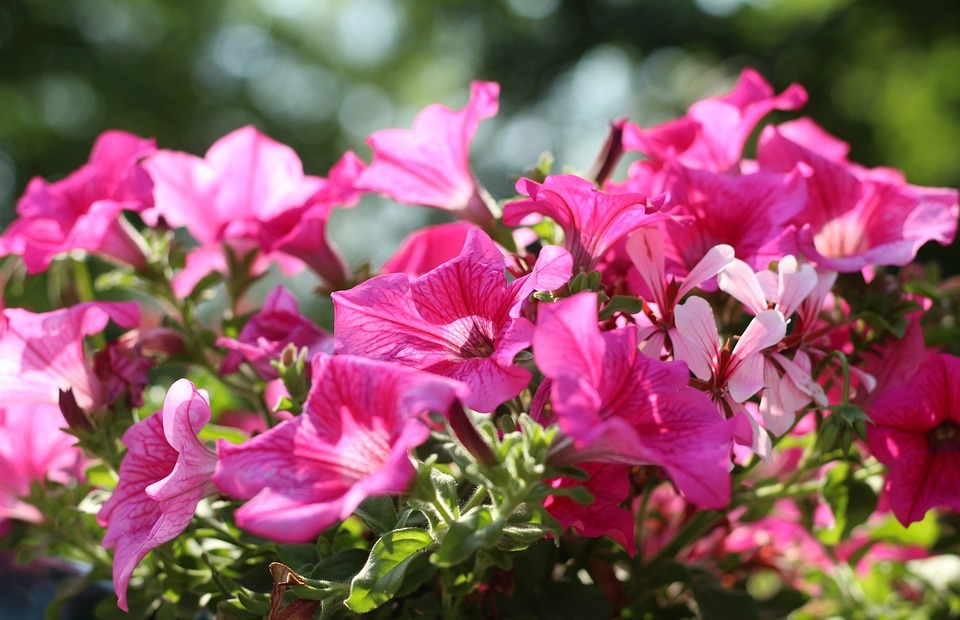This comprehensive guide provides in-depth information about the safety of petunias for rabbits, addressing common concerns and offering practical advice. We'll explore the nutritional value of petunias, identify potentially toxic varieties and components, and offer a step-by-step guide on how to introduce these flowers to your rabbit's diet safely. We'll also delve into the signs of petunia toxicity, providing a detailed overview of symptoms and what to do if your rabbit exhibits them. Finally, we'll answer frequently asked questions, equipping you with the knowledge to make informed decisions about your bunny's well-being.
Part 1: Understanding Petunias and Rabbits

Before diving into the specifics of petunia consumption, it's crucial to understand the dietary needs of rabbits and the potential interactions with petunias.
1.1 Rabbits' Dietary Needs
Rabbits are herbivores with a delicate digestive system that requires a diet primarily consisting of hay, fresh vegetables, and a small amount of pellets. They have a unique digestive process that relies on a steady supply of fiber for optimal gut health.
1.2 The Importance of Fresh Greens
While hay forms the foundation of a rabbit's diet, fresh greens provide essential vitamins, minerals, and antioxidants. Introducing variety is key to ensuring a balanced diet.
1.3 The Risks of Toxic Plants
Rabbits are susceptible to a wide range of toxic plants, including many common garden flowers and houseplants. Even small amounts of certain plants can cause serious health problems, so it's vital to be cautious when introducing any new food to your bunny.
Part 2: Nutritional Value of Petunias

Petunias are often considered ornamental flowers, but they can offer some nutritional value for rabbits when consumed in moderation.
2.1 Vitamin C Content
Petunias, like many other leafy greens, contain vitamin C. This essential nutrient supports the immune system, promotes wound healing, and aids in collagen production, which is crucial for maintaining healthy skin and bones.
2.2 Antioxidants
Petunias are also a source of antioxidants, which help protect cells from damage caused by free radicals. These antioxidants may contribute to overall health and well-being, potentially reducing the risk of chronic diseases.
Part 3: Potential Risks Associated with Petunias
While petunias can offer some nutritional benefits, certain risks are associated with their consumption, requiring cautious consideration.
3.1 Toxicity of Petunia Varieties
Not all petunia varieties are safe for rabbits. Some species contain potentially toxic compounds, such as alkaloids, that can cause digestive upset, lethargy, or even more severe health problems.
3.2 Specific Toxic Varieties
Here are some specific varieties of petunias to avoid:
Petunia hybrida: Often used in bedding plants and hanging baskets, this variety may contain higher levels of alkaloids, making it potentially toxic to rabbits.
Petunia x atkinsiana: A popular variety for its showy flowers, this species should also be avoided due to its potential toxicity.
3.3 Allergic Reactions
Rabbits can experience allergic reactions to petunias, just like humans. Symptoms may include itching, swelling, or respiratory distress. If you notice any of these symptoms, discontinue feeding petunias and consult a veterinarian.
3.4 Pesticide Residues
Petunias grown commercially or in gardens may have been treated with pesticides. These residues can be harmful to rabbits if ingested. To minimize the risk, choose organic varieties or those grown without pesticides whenever possible.
Part 4: Introducing Petunias to Your Rabbit: A Safe Approach
If you decide to offer petunias to your rabbit, proceed with caution and follow these guidelines to ensure their safety:
4.1 Choose Safe Varieties
Consult a veterinarian or rabbit expert: Seek guidance from qualified professionals to identify safe petunia varieties for your rabbit.
Research reputable sources: Explore websites and books specializing in rabbit care and nutrition.
Start with small amounts: Begin with a tiny portion of petunias and observe your rabbit's reaction.
4.2 Organic and Pesticide-Free
Organic options: Prioritize organically grown petunias, as they are less likely to contain pesticide residues.
Homemade gardens: Consider growing your own petunias to ensure they are free of chemicals.
Thorough washing: Always wash petunias thoroughly under running water to remove any dirt, debris, or pesticide residues.
4.3 Introduce Gradually
Gradual introduction: Start by offering a small piece of petunia leaf, carefully monitoring your rabbit's reaction.
Observation: Watch for any signs of digestive upset, allergies, or other adverse reactions within the first few hours of consumption.
Increase slowly: If your rabbit tolerates the first offering well, you can gradually increase the amount over several days.
Part 5: Signs of Petunia Toxicity in Rabbits
If your rabbit has ingested petunias and is exhibiting any of the following symptoms, seek veterinary attention immediately. Prompt action is crucial to ensure their well-being.
5.1 Digestive Upset
Diarrhea: Loose or watery stools, possibly with mucus or blood.
Vomiting: Forceful expulsion of stomach contents.
Abdominal pain: Restlessness, hunching, or crying when touched in the abdomen.
5.2 Behavioral Changes
Lethargy: Appears sluggish, uninterested in activity, or sleeping more than usual.
Weakness: Difficulties walking or jumping.
Loss of appetite: Refuses food or eats significantly less than usual.
5.3 Respiratory Distress
Difficulty breathing: Labored breathing, gasping, or wheezing.
Rapid breathing: Increased respiratory rate, noticeable as rapid chest movements.
Wheezing: A high-pitched whistling sound during breathing.
5.4 Other Symptoms
Seizures: Uncontrolled muscle contractions or spasms.
Tremors: Uncontrolled shaking or shivering.
Loss of coordination: Stumbles, falls, or has difficulty moving.
Part 6: Alternatives to Petunias for Your Rabbit
If you're looking for safe and healthy flower options for your rabbit, consider these alternatives:
6.1 Dandelion Greens
Nutritional benefits: Rich in vitamins, minerals, and fiber, dandelion greens are an excellent source of nutrients for rabbits.
Fresh or dried: Can be given fresh or dried, offering flexibility in providing this nutritious treat.
6.2 Basil
Aromatic herb: Basil offers a pleasant aroma and potential health benefits, making it a good choice for occasional treats.
Moderate amounts: Offer in small amounts as part of a varied diet, avoiding excessive consumption.
6.3 Parsley
Vitamin C and antioxidants: Parsley is a good source of vitamin C and antioxidants, adding to your rabbit's overall health.
Moderation: Offer parsley in moderation, as excessive consumption can potentially lead to digestive upset.
6.4 Mint
Refreshing herb: Mint offers a refreshing flavour and potential digestive benefits.
Sensitivity: Some rabbits are sensitive to mint, so introduce it cautiously and monitor for any adverse reactions.
Limited amounts: Offer mint in small amounts as a treat, avoiding excessive consumption.
Part 7: FAQs
7.1 Can rabbits eat petunia petals?
While some petunia petals may be safe, it's best to avoid them due to the potential presence of toxic compounds. Stick to offering the green leaves, as these are generally considered safer.
7.2 Are all petunia varieties toxic to rabbits?
No, not all petunia varieties are toxic. However, it's essential to identify safe varieties with the help of a veterinarian or rabbit expert. Consult reputable sources and avoid common petunia varieties known to be potentially toxic, such as Petunia hybrida and Petunia x atkinsiana.
7.3 What are the signs of a petunia allergy in rabbits?
Signs of a petunia allergy in rabbits include itching, swelling, and respiratory distress. If you notice these symptoms, stop offering petunias and consult a veterinarian.
7.4 How often can I give my rabbit petunias?
If your rabbit tolerates petunias well, you can offer them occasionally as a treat. However, it's best to avoid giving them daily due to the potential for toxicity. A few times a week or less is generally recommended.
7.5 What should I do if my rabbit has eaten a petunia?
If you suspect your rabbit has eaten a petunia, monitor them closely for any signs of toxicity. Contact your veterinarian immediately if you observe any adverse reactions.
7.6 Can I give my rabbit petunia seeds?
No, it's best to avoid giving your rabbit petunia seeds. The seeds may contain toxic compounds that can cause digestive problems.
7.7 Are petunia stems safe for rabbits?
Petunia stems are not recommended for rabbits. They can be tough to digest and may contain higher concentrations of potentially toxic compounds. Stick to offering the green leaves.
7.8 Is it safe to give my rabbit petunias that have been treated with pesticides?
No, it's not safe to give your rabbit petunias that have been treated with pesticides. Pesticide residues can be harmful to rabbits. Always choose organic options or those grown without pesticides.
7.9 Can petunias cause diarrhoea in rabbits?
Yes, petunias can potentially cause diarrhoea in rabbits, especially if they are not accustomed to eating them or if they ingest a large quantity. This is because petunias can be slightly acidic, and an excess can disrupt the delicate balance of a rabbit's digestive system.
7.10 Can rabbits eat petunias with pink or purple flowers?
While the color of the flower itself doesn't necessarily indicate toxicity, it's important to remember that the safest bet is to offer the green leaves rather than the petals. The petals may contain higher concentrations of certain compounds that could potentially cause digestive upset or allergic reactions.
7.11 What are the long-term effects of petunias on rabbits?
Long-term effects of petunias on rabbits are not well-documented. However, it's crucial to remember that any food introduced in excess or without proper monitoring can potentially lead to health problems.
Everyone is watching
-

Do Rabbits Lay Eggs? (The Surprising Truth)
OTHER TYPES OF PETSThis article will unravel the common misconception that rabbits lay eggs, exploring the fascinating world of r...
-

What's a Group of Rabbits Called? (A Comprehensive Guide)
OTHER TYPES OF PETSThis article delves into the fascinating world of rabbits, exploring the various terms used to describe a grou...
-

Can Rabbits Eat Grapes? A Guide to Safe Rabbit Treats
OTHER TYPES OF PETSThis comprehensive guide will explore the safety and suitability of grapes for rabbits, providing detailed inf...
-

Predators That Hunt Rabbits: A Guide to Natural Enemies
OTHER TYPES OF PETSI've always been fascinated by the circle of life, that delicate dance between predator and prey. Growing up ...
-

Are Rabbits Nocturnal Animals?
OTHER TYPES OF PETSThe question of whether rabbits are nocturnal animals is a fascinating one, with a surprisingly complex answer...
